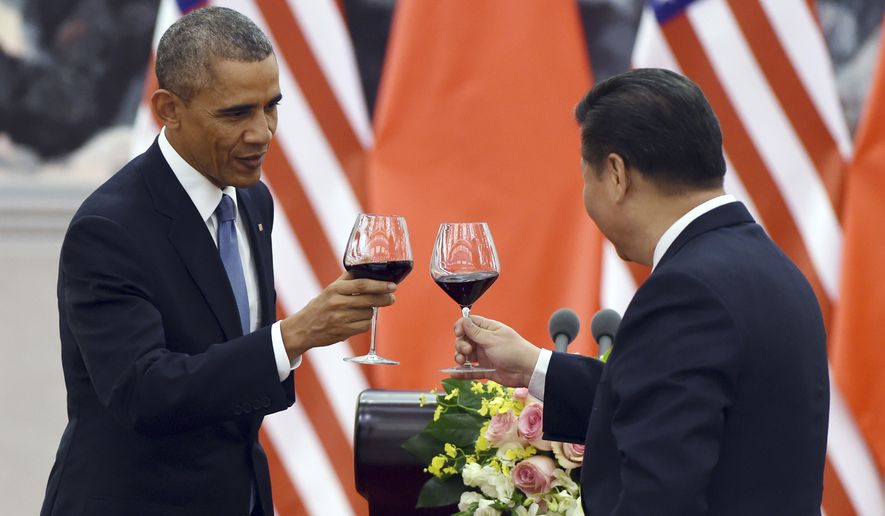Republican presidential hopeful Sen. Marco Rubio says Chinese President Xi Xingping is an “authoritarian ruler” and that President Obama should downgrade the Chinese leader’s upcoming Washington trip to a “working visit,” not role out the red carpet for him.
“This is an opportunity to speak bluntly to this authoritarian ruler and achieve meaningful progress, not to treat him to a state dinner,” Mr. Rubio wrote in op-ed published Friday by The Wall Street Journal, in which the Florida Republican outlined how he would approach China if elected president.
The op-ed is a preview of remarks on China that Mr. Rubio is expected to deliver in a campaign speech in South Carolina on Friday.
The first goal would be to “restore America’s strategic advantage in the Pacific” by ramping up U.S. military spending to send a clear message to Beijing about U.S. defense supremacy over the region and the world, Mr. Rubio wrote.
“China has increased its defense spending by 10% this year, continuing a 20-year trend,” the senator wrote. “We cannot continue to allow our military readiness to atrophy while China’s strengthens. My presidency will begin with an end to defense sequestration and a restoration of the Pentagon’s budget to its appropriate level. This will allow us to neutralize China’s rapidly growing capabilities in every strategic realm, including air, sea, ground, cyber space and even outer space.”
While aggressive, Mr. Rubio’s overall rhetoric on China came across in the op-ed as notably more level-headed than comments during recent weeks from other Republican candidates — several of whom appear to be trying to follow the path of Donald Trump, the current front-runner, who has made anti-China remarks a tenet of his campaign.
SEE ALSO: White House taunts Rubio over China proposal
With the China’s stock market and internal economic fluxuations roiling markets around the globe — including in New York — at the start of this week, Mr. Trump reminded voters that he has long been warning about U.S. vulnerability to China.
Wisconsin Gov. Scott Walker, another GOP presidential hopeful, was quick to go further, calling on President Obama to have some “backbone” and outright cancel Mr. Xi’s state visit next month.
Such a move, Mr. Walker claimed, would help hold China accountable for “increasing attempts to undermine U.S. interests” through “massive cyberattacks against America” and “militarization of the South China Sea.”
Most regional experts — from both sides of the aisle in Washington — say such rhetoric is likely only to inflame already delicate diplomatic and strategic relations between the U.S. and Beijing.
Mr. Rubio’s appeared eager to inject a kind of muscular sobriety into his own comments Friday, by asserting that the “U.S. must continue to pursue cooperation with China when possible” and acknowledging that “trade with [China’s] growing middle class has opened American businesses to hundred of millions of new customers.”
At the same time, however, Mr. Rubio argued that “Beijing’s protectionist economic and trade policies increasingly endanger America’s financial well-being.”
“For years, China has subsidized exports, devalued its currency, restricted imports and stolen technology on a massive scale,” Mr. Rubio wrote, adding that, as president, he would respond “not through aggressive retaliation, which would hurt the U.S. as much as China, but by greater commitment and firmer insistence on free markets and free trade.”
This would include working overtime to push through the Trans-Pacific Partnership and other trade agreements, and imposing consequences on Beijing in response to Chinese hacking of American companies, he wrote.
“Beijing will not receive a free pass on human rights,” Mr. Rubio wrote, adding that his administration would push for “unconditional release” of Chinese political prisoners, and would not hesitate to “impose visa bans on Chinese officials who violate human rights.”
• Guy Taylor can be reached at gtaylor@washingtontimes.com.




Please read our comment policy before commenting.